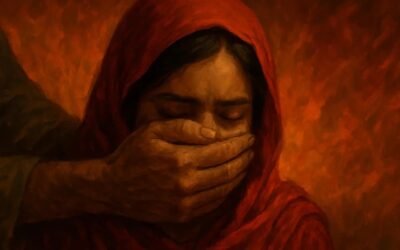The relationship between a community and its police force operates on a fragile foundation of trust. When this trust erodes, the consequences extend far beyond individual grievances as they cripple the entire justice system.
Across the world, from the crowded streets of Karachi to the favelas of Rio de Janeiro, a dangerous pattern has emerged whereby crimes go unreported, investigations stall, and criminals operate with impunity. At the heart of this crisis lies a toxic combination of public distrust, police corruption, and systemic failures in accountability.
Pakistan’s Crisis of Confidence in Law Enforcement
In Pakistan, this breakdown manifests in stark ways. The police force, often understaffed and under-resourced, faces widespread allegations of corruption and brutality. For ordinary citizens, approaching a police station to report a crime can feel like stepping into a maze of demands –requests for bribes to file a case, deliberate delays in investigations, or worse, outright hostility from the officers meant to protect them.
According to Gallup Pakistan’s 13-year tracking (2011-2024), public approval of police performance has shown little improvement, with combined “good/very good” ratings increasing from 9% to 26%. During the same period, negative ratings (“bad/very bad”) dropped sharply from 71% to 33%.

Source: Gallup
Global Parallels: When Police Become Part of the Problem
The problem extends far beyond Pakistan. In Mexico, where drug cartels wield terrifying influence, many crimes go unreported because victims fear retaliation; not just from criminals, but from police officers who may be working with them.
A similar dynamic plays out in South Africa, where vigilante justice has risen in response to widespread perceptions of police incompetence and corruption. When people lose faith in the institutions designed to protect them, they often take matters into their own hands, leading to cycles of violence that further destabilize communities.
The Corruption Quagmire in Law Enforcement
Corruption within law enforcement agencies remains one of the most significant barriers to effective crime reporting. In some cases, officers actively protect criminals in exchange for bribes; in others, they manipulate investigations to shield the powerful.
The infamous “encounter killings,” or in other words extra-judicial killings, in Karachi where police claimed to have shot dangerous criminals in supposed shootouts have repeatedly come under scrutiny. Human rights groups have documented cases where these encounters appeared staged, with evidence suggesting innocent victims were targeted to cover up police involvement in criminal activities.

Source: RUSI
The Chilling Effect of Fear and Retaliation
Even in cases where officers are not overtly criminal, victims often fear retaliation, either from the criminals or from the police themselves. Domestic violence survivors, for example, frequently avoid reporting abuse because they worry officers will dismiss their complaints or side with their abusers.
In India, where sexual assault cases are notoriously underreported, many women hesitate to approach police stations due to the stigma and the risk of being harassed by the very officers meant to help them.
No-Snitch Cultures in Marginalized Communities
Brazil’s favelas present another grim example. Residents often refuse to cooperate with police investigations, fearing they will be labeled as informants and targeted by drug gangs. This “no-snitch” culture leaves entire neighborhoods trapped in cycles of violence, with crimes going unreported and criminals operating freely.
The parallels to marginalized communities in Pakistan are striking, whether in Karachi’s Lyari neighborhood, where gang violence has flourished amid police inaction, or in rural Sindh, where feudal lords often operate above the law with the tacit approval of local authorities.
Accountability Void in Policing Systems
A critical factor fueling this crisis is the lack of accountability for police misconduct. When officers accused of brutality, bribery, or negligence face no consequences, public confidence evaporates.
In the United States, despite widespread protests over police killings, convictions of officers remain vanishingly rare. In Pakistan, the problem is compounded by a system where police stations, or thanas, operate with minimal oversight. Officers accused of torture or fake encounters are rarely prosecuted, reinforcing the perception that law enforcement is immune to the law.
Pathways to Reform and Restoring Trust
Breaking this cycle requires more than superficial reforms. Independent oversight mechanisms, such as civilian review boards with real investigative power, are essential to holding police accountable.
Transparency measures like: body cameras, and public access to complaint records can help rebuild trust by ensuring that misconduct is documented, and addressed.
Community policing initiatives, where officers work alongside residents rather than simply enforcing laws from a distance, have shown promise in places like Georgia, where sweeping reforms reduced corruption and improved public trust.
The Urgent Need for Systemic Change
The stakes could not be higher. When crimes go unreported, justice becomes a privilege reserved for the powerful, while the vulnerable are left to suffer in silence. The erosion of trust in law enforcement is not just a policing issue, it is a threat to the very idea of justice.
Without urgent, systemic change, the cycle of distrust and impunity will only deepen, leaving criminals emboldened and victims without recourse. The question is no longer whether reform is needed, but whether those in power have the courage to make it happen.



























